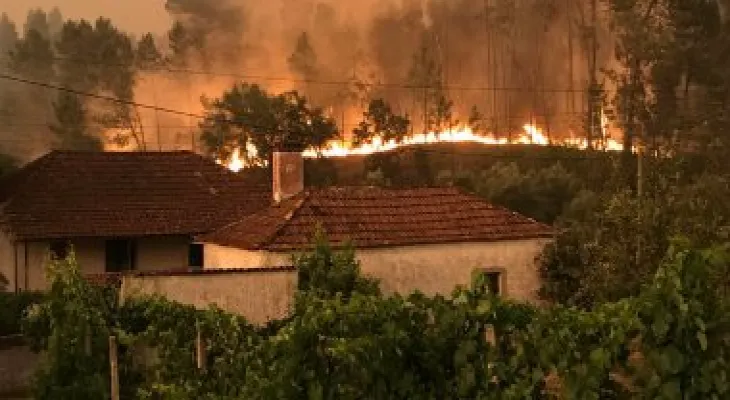Search here
Newspaper
Search here

Arab Canada News
News

Published: October 5, 2022
Ottawa - Federal officials warned in an internal briefing document that there is no way to enforce building or fire codes on First Nations, and that seeking legislative reform will require a lot of time and money.
Canadians now travel through customs with NEXUS. Home fires have long posed a significant risk to the safety of those living on reserves, with many children dying in fires that erupted in local communities earlier this year in southern Alberta and northern Ontario.
Indigenous leaders and experts link the high number of fatal house fires on reserves to the lack of adequate housing and overcrowding, as well as insufficient funding and education on fire protection. Both the Canadian Association of Fire Chiefs and the Indigenous Firefighters Association of Canada have called on Ottawa to pass legislation to apply building and fire codes to First Nations communities and authorize inspections.
But a briefing document prepared for the Deputy Minister of Indigenous Services Canada states that there is currently no way to enforce provincial or national building or fire codes for buildings located on reserves.
The document says the department can ensure that the infrastructure it funds complies with such rules, but the only other rescue option for a First Nations individual is to pass "special regulations." Officials said: "While there has long been recognition of the need to address compliance regarding building and fire codes for infrastructure and other housing, there is no broad support for an approach to enforce building on reserves and fire code."
The document said provincial fire services could condemn a building off-reserve if they feel it endangers the lives of people inside, but this is more complicated for reserved structures.
Officials said in the briefing note: "Since most fire deaths occur in residential buildings, adopting a similar approach for reserve communities would mean that First Nations individuals could have restricted access to their own property on First Nation land."
"Such an approach requires careful study and will require extensive consultation." Wiggins says if new legislation or regulations are enacted by the First Nation, the government must provide the necessary funding and resources to ensure these standards are met. He said: "There is concern within First Nations leadership, just as with other legislation, that once legislation is enacted, the federal government does not properly fund it, and thus it fails."
The briefing document appears to show federal bureaucrats feel the same. Officials said fire protection has not been legislated as an essential service, and ongoing efforts to designate First Nations policing as essential come at a high cost.
The document said: "The legislative approach to fire protection is likely to follow a similar path, requiring early and significant commitments for funding and programming." A spokesperson for the Minister of Indigenous Services Patty Hajdu said in a statement the government does not plan to legislate fire protection following consultation with First Nations partners and communities.
The statement said, "It was decided that legislation would not be the best approach at this time. Instead, the focus should remain on identifying and understanding existing gaps and working together to close them."
"If legislation is identified as a priority by Indigenous leadership at a future stage, the federal government would be receptive to this advice and open to working collaboratively."
Indigenous Services Canada is currently working with the Assembly of First Nations to launch a new fire protection strategy to improve the use of fire codes.
In 2021, the chief coroner of Ontario said in a report on Indigenous fire deaths that there was "judicial neglect."
The review, which followed several fatal fires on Ontario reserves, stated that because First Nations lands are governed by federal Indian law, provincial building codes generally do not apply, and First Nations often fall through the cracks.
The review concluded that "the disputes between federal and provincial governments over their jurisdictions have contributed to a chronic lack of funding and the provision of fragmented and inadequate services to Indigenous communities."
Edited by: Yusra Bamtarf
Comments